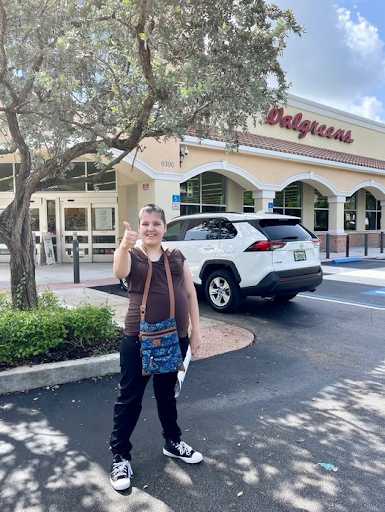Benefits of Supportive Housing for Clubhouse Members
Housing is a vital aspect of a stable and fulfilling lifestyle, particularly for individuals living with mental illnesses. However, individuals facing mental health challenges may require extra support to ensure their housing needs are met. This is where supportive housing comes in. In this article, we will examine the concept of supportive housing and the advantages it offers to individuals with mental illnesses.
What Is Supportive Housing?
Supportive housing is a powerful solution that combines affordable housing with vital support services. It provides individuals and families with a stable foundation for health and recovery after experiencing homelessness, hospitalization, incarceration, or other difficult circumstances.
Supportive housing is specifically designed for people facing the most complex challenges. It is a lifeline for those with very low income, as well as individuals grappling with serious and persistent issues such as substance abuse, mental health issues, and chronic diseases.
By offering a supportive environment and access to essential services, supportive housing helps people overcome these obstacles and build a successful life. It is a beacon of hope and provides individuals with the opportunity to regain stability and transform their lives.
If you or someone you know is facing these challenges know that supportive housing is available to provide the assistance and support needed to thrive. It gives people the opportunity to regain stability and transform their circumstances.
Welcoming Our New Supportive Housing Facility
The construction of Southwest Hammocks in Pembroke Pines is going well. By 2024, Footprint to Success Clubhouse will be relocating to Pembroke Pines, where we will have a new facility built in collaboration with Carrfour Supportive Housing. This partnership will provide our Clubhouse members with affordable housing opportunities, and the new facility will allow us to serve a larger number of individuals in our community.
What Our Members Are Saying
What Is a Clubhouse?
“A Clubhouse is a very special place for a family or group of people who share a common background of having a mental illness. It is a supportive place that brings friends to become family by tackling the hurdles of living with mental illness together.
The Clubhouse brings strong support resources through many types of programs — the day treatment or psychosocial rehabilitation as well as the enriched activities and events. These programs make the Clubhouse and staff a place of growth, dreams, and achievement. The Clubhouse helps each of us on the recovery and rehabilitation journey back into the community.”
~Maria Blanco
Excited About the Hammocks
“I am excited for Southwest Hammocks because I know I can become more independent with the new affordable housing and gain more skills and move forward with my progress and improving my life!"
~Brian, a longtime member
Characteristics of Supportive Housing: Sign Your Own Lease!
One of the benefits of supportive housing is independence. Clubhouse members get to sign their own lease! Tenants have the same rights and responsibilities as any other renter. They have their leases in their name and enjoy the right to privacy within their units. Importantly, tenants cannot be evicted unless they fail to uphold their responsibilities as good tenants.
Renters also don’t have to worry so much about the cost of their own place. Supportive housing focuses on the principles of permanence and affordability. Tenants typically contribute no more than 30 percent of their income towards rent, making it a sustainable option for individuals with limited financial resources.
By combining safe and affordable housing with necessary services, supportive housing provides individuals with a stable environment to thrive and improve their quality of life while ensuring that they receive the appropriate care and support. Supportive housing offers a solution that not only addresses housing insecurity but also promotes overall well-being for individuals in need.
Core Principles
The core set of service principles governing supportive housing include:
Housing-oriented services: These services help tenants maintain their housing, locate suitable housing, initiate and build relationships with their landlords, and understand their rights and responsibilities as renters. Providers can intervene as necessary to prevent evictions.
Multi-disciplinary services: Service providers help tenants manage their mental and physical well-being and aid in applying for benefits and employment.
Voluntary but assertive services: Providers will show up and keep checking on program participants, keeping their best interests at heart. Don’t worry — tenants won’t lose their homes if they choose not to participate in these services.
Team specialists: These professionals include doctors, nurses, mental health and substance abuse experts, and case managers, often working in tandem. These teams will also link clients to mainstream services such as work training.
Integration: Tenants can live independently in apartments and single-family homes in residential communities. People in supportive housing can access public transportation, stores, malls, parks, and other neighborhood amenities like other residents. Support services are often provided in the tenant's unit, building, or another location.
Freedom of choice: Supportive housing focuses on clients' choice of housing types and service options. Tenants can come and go as they please and have complete control over their daily schedules (such as meals and visitors). They can also choose the types of services they need to achieve their goals.
Low-entry barriers: Supportive housing providers don’t need tenants to overcome screening barriers before moving in. This means that bans on individuals with criminal histories, bad credit, under-employment, or substance abuse treatment do not apply in supportive housing, as these are often the people who need assistance the most.
Supportive Housing Reduces Healthcare Spending
Policymakers are recognizing the importance of combining healthcare and housing for the homeless population. By integrating on-site health services with housing, we can provide the essential support and resources needed for those experiencing homelessness, especially those with mental health challenges. This innovative model of supportive housing offers a compassionate solution that addresses their unique needs and improves their access to healthcare.
Supportive housing has proven to be incredibly effective in reducing the burden on homeless shelters, prisons, emergency rooms, hospitals, and psychiatric facilities. In fact, the cost savings from these reduced services often cover the expenses of supportive housing programs. By investing in supportive housing, we can make a significant impact on improving the lives of individuals while also saving money in the long run.
Supportive Housing Helps People Reach Full Potential
Everyone needs safe and stable housing to reach their full potential in everyday life, and many also get hired at new jobs. Some health conditions make it challenging to maintain a stable home without assistance. Supportive housing is an effective strategy that combines affordable housing with intensive, coordinated services to help vulnerable individuals with mental illness, chronic medical conditions, and other challenges. It provides a stable and secure home for those who would otherwise be homeless, allowing them to access necessary treatment and support services.
By addressing underlying issues and providing comprehensive care, supportive housing helps individuals rebuild their lives and regain their independence. Expanding access to supportive housing is essential for improving the lives of those in need and addressing homelessness.
Research shows that supportive housing helps people with disabilities maintain stable housing. Residents in supportive housing use high-cost systems like emergency health services less frequently and are less likely to be incarcerated. Supportive housing also aids people with disabilities to access better healthcare and helps seniors stay in the community as they age.
Supportive Housing for Growth and Development
We can't wait for our new building to open in 2024! This way we can provide more supportive housing to those in need.
Do you need help finding supportive housing? Footprint to Success can help you find and maintain the right housing for your needs. Contact us today for more information about joining our Footprint to Success community.




